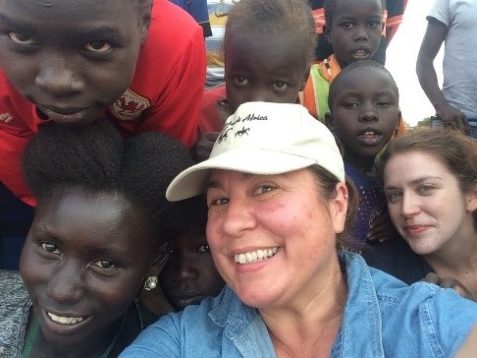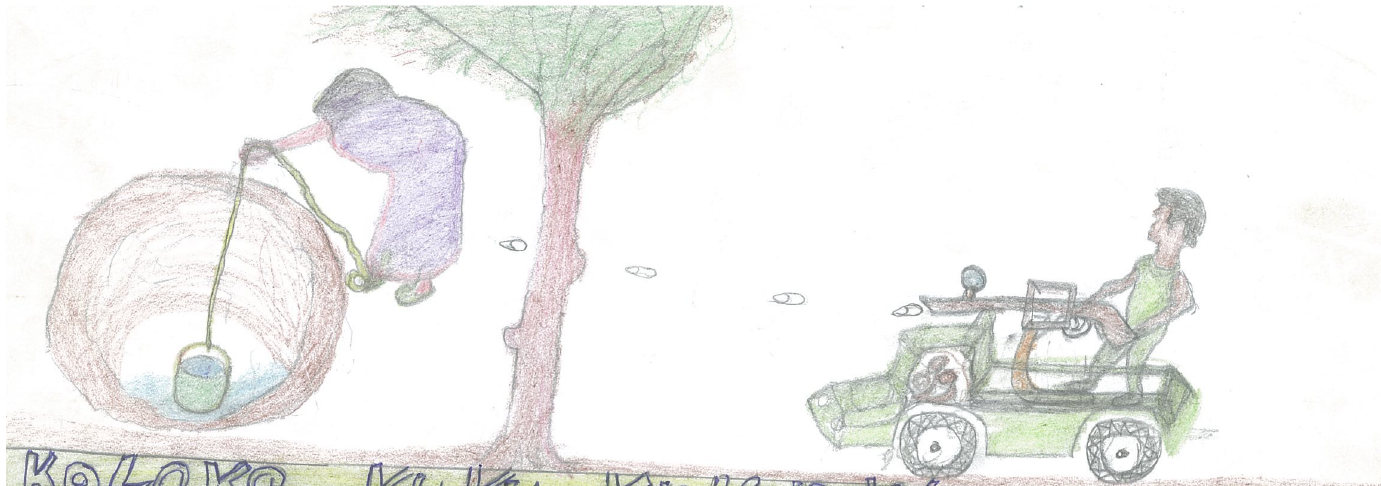HMDT Blog: The forgotten victims of the Nuba Mountains – Sonja Miley
Sonja Miley, Co-Executive Director for the charity Waging Peace, has recently returned from a trip to the Yida refugee camp in South Sudan. In this blog for Holocaust Memorial Day Trust, Sonja reflects on her experiences meeting people from the Nuba community who have fled Sudan and the regime of President Omar al-Bashir.

‘Please tell the world what is happening to our people,’ says Matthew (name changed).
He is among 50,000 Sudanese civilians who have fled to South Sudan (an independent country since it split from Sudan in 2011). His ethnic group, the Nuba, are one of several indigenous people being targeted by the Khartoum regime. Sudan’s president, Field Marshall Omar Bashir, has already been indicted for genocide in Darfur. Less known is his regime’s attempt to eliminate the Nuba, who are ethnically black African. Bashir has been open about his intention to rid Sudan of anyone who resists his attempt to impose an Arab and Muslim identity on all citizens, whatever their background.

Sonja Miley and Maddy Crowther from Waging Peace with refugees in the Yida camp
We meet Matthew at Yida refugee camp, just across the border in South Sudan. He tells us about the Sudan regime’s systematic aerial bombardment of farms, villages, markets, clinics and schools. Government forces are intent on destroying Nuba culture, their peaceful way of life, their religious freedoms, their indomitable strength and their dignity. The Nuba are facing a ‘double apartheid,’ according to a senior official from the Nuba Mountains: they are black, and they are, mostly, not Muslim.
In December 2018, my Waging Peace Co-Director and I visited Yida refugee camp to take testimony from survivors like Matthew. We stayed with one of the few remaining humanitarian organisations left in Yida, Samaritan’s Purse. People were keen to tell us their stories. The suffering of the Nuba has largely gone unnoticed by the international community, and they welcomed our presence.
Below is one of the 60 Nuba pictures we collected from children in Yida. We asked them to draw anything they wished. Picture after picture depict scenes of war with strikingly similar images: Sudanese government war planes dropping bombs on civilians as they go about their daily lives, herding cattle and tending to domestic duties; a woman fetching water from a well, being shot at by the regime’s soldiers.

Drawing from a child in the Yida refugee camp, December 2018
These pictures are an ominous reminder of the ongoing conflicts that rage in Sudan. 11 years on from the Darfur Children’s Drawings we collected in 2007 from children in refugee camps in Chad, they are hauntingly similar. We will soon launch our full collection of Nuba Children’s Drawings so please keep in touch for details of this important launch.
Waking in Yida in the Samaritan’s Purse compound, surrounded by a tall grass fence, the sounds and smells of the camp remind us of the tentativeness of our surroundings. As dawn breaks, a cacophony of stray dogs bark wildly, as they do every night, from dusk to dawn. Roosters crow noisily, and donkeys, used to cart heavy sacks of sorghum, join in the frenzy. Birds with unfamiliar birdsong too foreign to me to identify, busily start their day before the suffocating heat takes hold by mid-morning. Smoke from campfires brewing morning tea fills the dusty air. It’s as if the entire camp of 50,000 people wakes at once, and you hear movement and life where you least expect it.
Under pressure from the authorities, many humanitarian organisations have left Yida camp, moving 1.5+ hours south of the border with Sudan, away from rebel-controlled areas where the Nuba feel safer. Despite the lack of humanitarian support in Yida, (education, health care and widespread access to water), the camp dwellers are reluctant to move because they have well-founded concerns for their safety. Many feel they are being disadvantaged by the host government of South Sudan, treated as second class citizens, a theme familiar to the Nuba in their own country. Their mistrust is reinforced by what they feel as coercion to leave due to the removal and reduction of services, water, and food. The conditions in Yida have become so difficult that the Nuba are under threat of being torn from the home they’ve created, yet again.
At Yida there is a palpable collective and individual trauma from years of sustained attacks; horrific scenes of war and death that leave no person from the Nuba Mountains in Yida untouched by loss, persecution and the apartheid against them. Yet, there is hope, born of their extraordinary resilience and resourcefulness. In my experience, to meet the people of the Nuba Mountains is to love them. The generosity of spirit of many of the people of the Nuba Mountains has shed light, even through the darkest hours of their long history. We must remember with them. We must learn about them. We must stand together in solidarity, hope and determined action for the dignity and survival of the Nuba.
To learn more about the Nuba people, and genocide and conflicts in Sudan, and to support our work, please contact us. Waging Peace is a UK NGO bringing awareness and focus to human rights abuses in Sudan. We help Sudanese asylum seekers and refugees build meaningful lives in the UK.
The HMDT blog highlights topics relevant to our work in Holocaust and genocide education and commemoration. We hear from a variety of guest contributors who provide a range of personal perspectives on issues relevant to them, including those who have experienced state-sponsored persecution and genocide. The views expressed are those of the author and do not necessarily represent the views of HMDT.